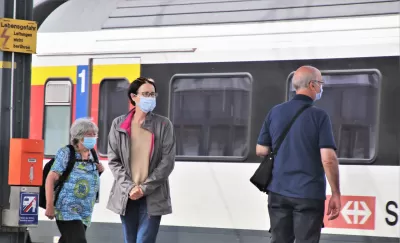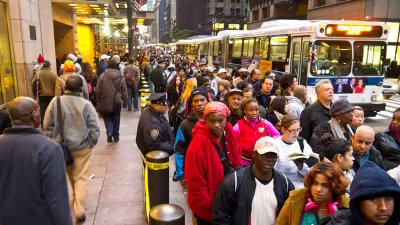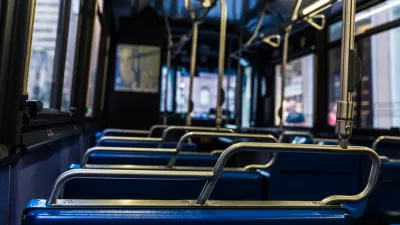Almost a year into the devastating effects of the COVID-19 pandemic, the Urban Institute assesses what we've learned about transportation equity—and what these lessons mean for the future.

In a recent webinar hosted by the Urban Institute, a panel of city and community leaders discussed transportation equity and the barriers and opportunities highlighted by the pandemic. While transit agencies across the country have made steep service cuts, it has become painfully obvious that the people most hurt by reduced service are the essential workers—many low-income and BIPOC—who rely on public transit for their livelihood. Transit cuts also hurt the elderly and people with disabilities, who face increased barriers in finding safe, accessible, and affordable transportation. The panelists agreed that disinvestment in public transit is shortsighted and dangerous, as rolling back the budget cuts will be difficult to do later. After the pandemic, communities will need long-term plans for improved commutes and safe, accessible transit.
Christina Plerhoples Stacy and Christopher Davis highlight the four main lessons that emerged from the discussion. The webinar presented the Institute's new transportation equity data tool and hosted a panel discussion about potential solutions to transportation inequities. The big takeaways:
- Prioritizing roads and highways over public transit perpetuates the negative impacts of structurally racist policies.
- Reducing funding for equitable transportation directly affects essential workers, who depend on public transit more than other groups.
- Funding structures affect how equitable transit systems are.
- Early community engagement matters for planning and implementing policies that provide services to underserved communities.
FULL STORY: Four Lessons for Cities to Help Advance Equitable Transportation during the COVID-19 Pandemic and Beyond

Planetizen Federal Action Tracker
A weekly monitor of how Trump’s orders and actions are impacting planners and planning in America.

Chicago’s Ghost Rails
Just beneath the surface of the modern city lie the remnants of its expansive early 20th-century streetcar system.

San Antonio and Austin are Fusing Into one Massive Megaregion
The region spanning the two central Texas cities is growing fast, posing challenges for local infrastructure and water supplies.

Since Zion's Shuttles Went Electric “The Smog is Gone”
Visitors to Zion National Park can enjoy the canyon via the nation’s first fully electric park shuttle system.

Trump Distributing DOT Safety Funds at 1/10 Rate of Biden
Funds for Safe Streets and other transportation safety and equity programs are being held up by administrative reviews and conflicts with the Trump administration’s priorities.

German Cities Subsidize Taxis for Women Amid Wave of Violence
Free or low-cost taxi rides can help women navigate cities more safely, but critics say the programs don't address the root causes of violence against women.
Urban Design for Planners 1: Software Tools
This six-course series explores essential urban design concepts using open source software and equips planners with the tools they need to participate fully in the urban design process.
Planning for Universal Design
Learn the tools for implementing Universal Design in planning regulations.
planning NEXT
Appalachian Highlands Housing Partners
Mpact (founded as Rail~Volution)
City of Camden Redevelopment Agency
City of Astoria
City of Portland
City of Laramie





























